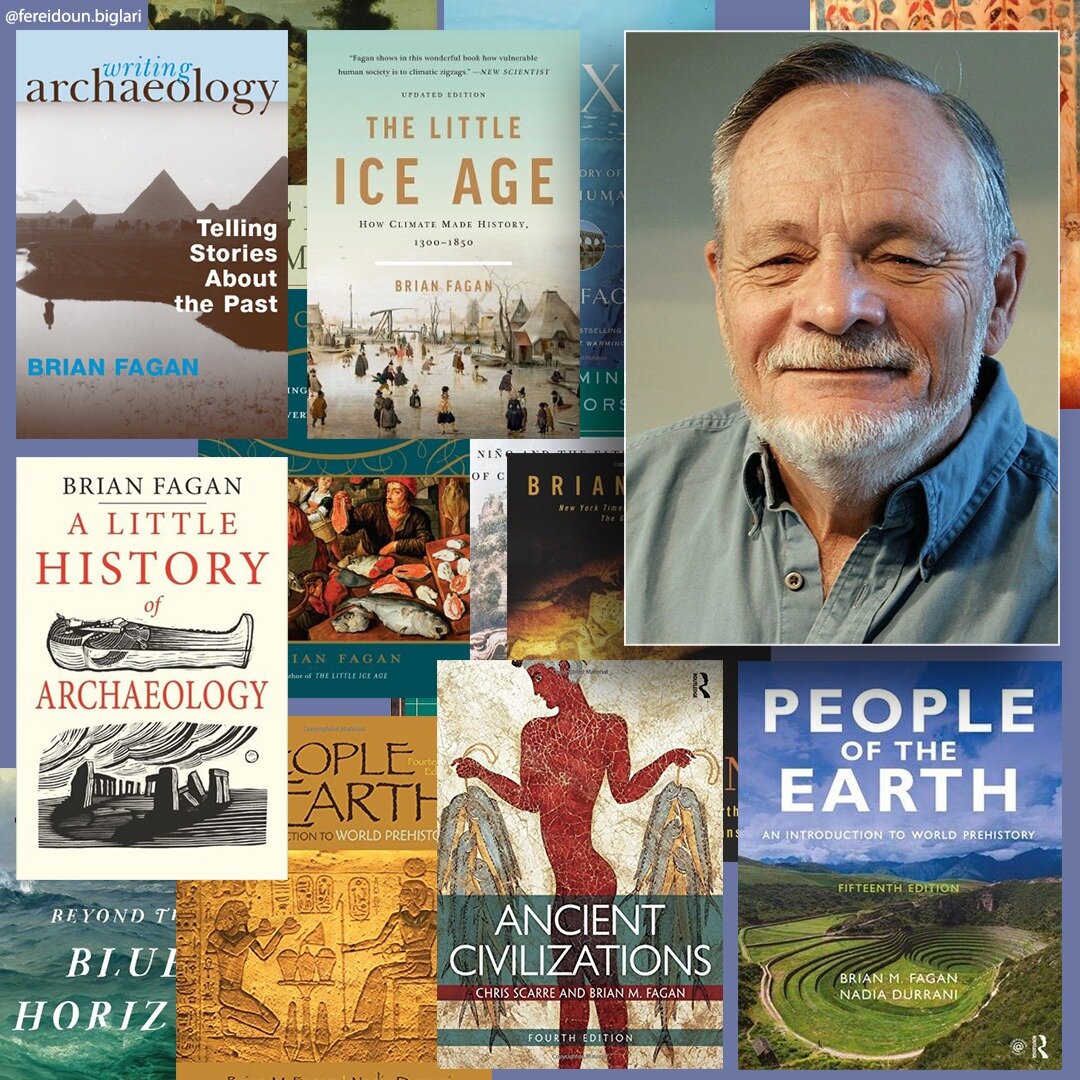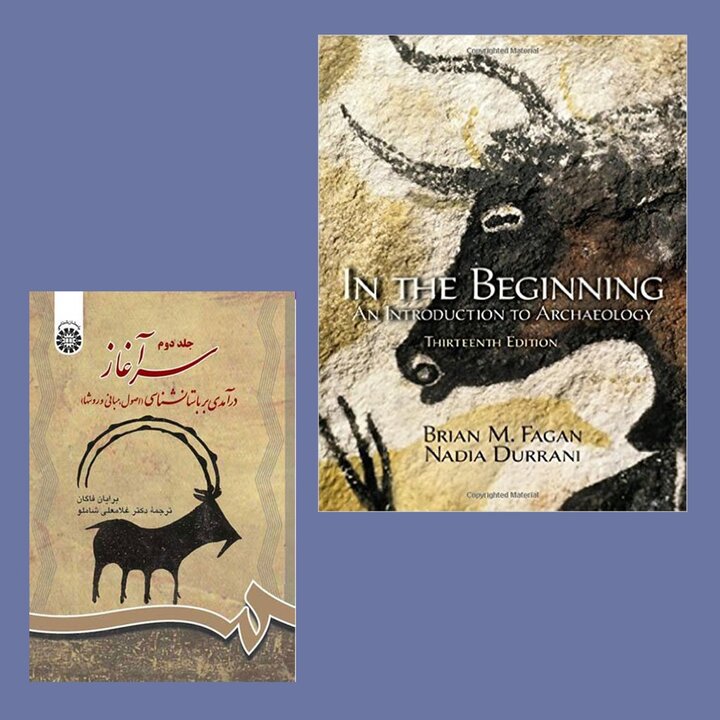Sad news for the world of archaeology: Brian Fagan, father of public archaeology, passed away

The world of archaeology has lost one of its most influential figures: Brian Fagan, often hailed as the father of public archaeology, has passed away.
For more than five decades, Fagan bridged the gap between academia and the general public, making complex archaeological concepts both accessible and engaging through his writing.
My personal connection to Fagan’s work stretches back nearly thirty-seven years to my high school days in Kermanshah. On a hot August day in 1988, a package arrived that would leave a lasting impression on me. Inside was “The Adventure of Archaeology”, a beautifully illustrated book from the National Geographic Society. Fagan's storytelling captivated me from the very first page, taking readers on an exhilarating journey through some of archaeology's greatest discoveries—ranging from Nabonidus in the 6th century BCE to the groundbreaking finds of the 20th century. His eloquent and approachable language brought the discipline to life, enhanced by stunning photographs of ancient sites, artifacts, and reconstructed historical scenes.
As a newcomer to Paleolithic archaeology, I found Fagan’s work on the Leakey family’s excavations in East Africa and the exploration of Paleolithic caves particularly captivating. Unfortunately, in Iran, we’ve struggled to effectively educate the public about archaeology. Many still associate the field with treasure hunting, despite the tireless efforts of some colleagues on platforms like Instagram, who aim to share accurate reports of archaeological discoveries and emphasize the discipline’s importance in understanding our shared history. There's still much to be done.
A recent success in this regard is the “Definitive Visual History of Ancient Iran” series, a four-volume set published with exceptional quality by Cyan Publication. To date, Fagan’s “In the Beginning: An Introduction to Archaeology” is the only one of his works translated into Persian, in two volumes by Gh. Shāmlu and published by SAMT. I remain hopeful that future translations of his remarkable writings will follow.
Brian Fagan was a pioneering archaeologist and a leading expert in prehistory. He began his academic career as a Visiting Professor at the University of Illinois before becoming a Full Professor at the University of California, Santa Barbara in the 1960s. Over his illustrious career, Fagan authored or edited 46 books, including seven best-selling textbooks such as “In the Beginning”, “People of the Earth”, and “Archaeology: A Brief Introduction”. These works, frequently updated and revised, introduced generations of students to archaeology with clear, jargon-free language that made complex topics accessible to all.
In addition to his prolific publications, which include more than 100 scholarly papers, Fagan served as editor for prestigious journals like “Archaeology Worldwide”. He was also a regular contributor to public media, effectively bridging the gap between academic archaeology and the wider public.

Fagan’s contributions to education were revolutionary. He was known for teaching large introductory classes, making archaeology approachable for thousands of students. His outreach extended far beyond the classroom, with consultations for institutions like the National Geographic Society, Microsoft Encarta, and the BBC. He also lectured at renowned institutions such as the Smithsonian and produced influential radio and TV programs, including the “Lost Civilizations” series. His work earned him numerous accolades, including the Society of Professional Archaeologists' Distinguished Service Award and the Society for American Archaeology’s Public Education Award.
Fagan’s scholarly approach was marked by his ability to blend cultural history with modern archaeological methods, using interdisciplinary sources to reconstruct historical narratives. A fierce advocate for cross-disciplinary research—especially regarding past climate change—he was also instrumental in reassessing archaeology's role in contemporary society.
Fagan’s work has left an indelible mark on the field of archaeology. He made archaeology not just a discipline, but a shared adventure—one that continues to inspire and inform generations around the world.
(The author serves as the Deputy Director for Cultural Affairs and is the Head of the Paleolithic Department at the National Museum of Iran.)
AM
Leave a Comment